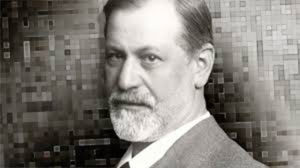En relisant «Au-delà du principe de plaisir»
Résumé
La Métapsychologie freudienne, reposant sur les postulats a priori de la Naturwissenschaft du XIXème siècle, pose des problèmes insolubles du point de vue épistémologique.
La démonstration est faite à partir de la notion de Pulsion de Vie à laquelle Freud ne réussit jamais à conférer un authentique statut : ses présupposés physicistes les ramenant sans cesse à des modes d'explication réductionniste applicables au seul inorganique.
Le biologique (et a fortiori le psychique) ne peuvent dès lors être réellement rapportés dans leur spécificité propre.
La suggestion est faite de s'en référer à la phénoménologie pour éviter les écueils et du vitalisme et du scientisme.
Samenvatting
De Freudiaanse metapsychologie berust op de a priori grondslagen vande «Naturwissenschaft» der 19e eeuw. Dit brengt onoplosbare problemen met zich mee als men zich op epistemologisch standpunt plaatst.
Dit wordt aangetoond aan de hand van het begrip «levensdrift» begrip waaraan Freud nooit vermocht een authentiek statuut te geven. Zijn vooronderstelde natuurwetenschappeleijke grondslagen brachten hem namelijk steeds terug naar herleidende verklaringswijzen die alleen op het anorganische van toepassing zijn. Het biologische en sterker nog het psychische kunnen derhalve niet in hun specifieke eigenheid weergegeven worden.
De auteur suggereert zicht te richten op de phenomenologie. Zodoende kunnen we de twee klippen van vitalisme en scientisme omzeilen.
Summary
Freudian metapsychology, based upon the a priori postulates of 19th century Naturwissenschaft, presents insoluble problems from the epistomelogical point of view.
This is shown from the beginning in the notion of the Life Instinct upon which Freud never succeeded in conferring an authentic status : his physical presuppositions continually lead back to reductionist explanations applicable only to the inorganic.
The biological (and even more strongly, the psychic) cannot from that moment be presented in their proper specificity.
An appeal to phenomenology is suggested, to avoid the shoals of vitalism and of scientism.





